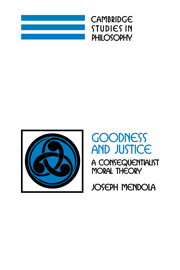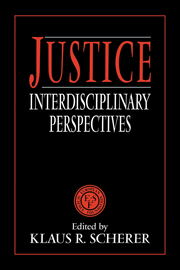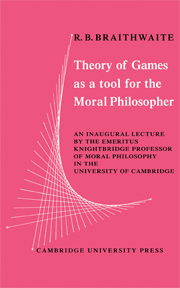Goodness and Justice
In Goodness and Justice, Joseph Mendola develops a unified moral theory that defends the hedonism of classical utilitarianism, while evading utilitarianism's familiar difficulties by adopting two modifications. His theory incorporates a developed form of consequentialism. When, as is common, someone is engaged in conflicting group acts, it requires that one perform one's role in that group act that is most beneficent. The theory also holds that overall value is distribution-sensitive, ceding maximum weight to the well-being of the worst-off sections of sentient lives. It is properly congruent with commonsense intuition and required by the true metaphysics of value, by the unconstituted natural good found in our world.
- Develops a different form of consequentialism
- Integrates distributive justice and goodness
- Treats normative and meta-ethical issues in a unified way
Reviews & endorsements
Review of the hardback: 'Mendola follows the arguments wherever they lead him, undaunted and proud, no matter how unlikely the conclusion. Goodness and Justice is not just provocative, however. It is a rewarding and challenging book thoroughly packed with relentless and systematic arguments.' Utilitas
Product details
July 2011Paperback
9780521353557
338 pages
229 × 152 × 19 mm
0.5kg
Available
Table of Contents
- 1. Introduction
- Part I. A Better Consequentialism:
- 2. Multiple-act consequentialism
- 3. Three objections
- Part II. Hedonism:
- 4. Intuitive hedonism
- 5. Natural good
- Part III. MAXIMIN:
- 6. Just Construction
- 7. Maximin, risks, and flecks
- Part IV. Advice for Atomic Agents:
- 8. A coda.




